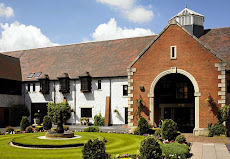IFEDA VOICES CONCERN OVER FIRE EXTINGUISHER REMOVAL
IFEDA, the Independent Fire Engineering & Distributors Association, is questioning the reasoning behind the recent removal of fire extinguishers in a property maintained by Richmond Housing Partnership (RHP). Residents at the property have allegedly been told that the removal of fire extinguishers from common areas of their block of flats was for their own safety. Nigel Walton, Chairman of IFEDA, commented: “IFEDA would question what available evidence demonstrates that the removal of fire extinguishers would enhance residents’ safety. Providing the correct type of fire extinguisher is in place, as determined by British Standard 5306 PT8, the likelihood of using the wrong type of fire extinguisher on a fire is minimal. It would be unlikely that dry powder extinguishers would be used in communal evacuation routes, for example, a stairwell. Therefore the risk from obscured vision and breathing difficulties due to dust is minimal. Surely the sensible option would be to inform residents about the practical use of handling a fire extinguisher, rather than removing them altogether.” Walton continued: “All fires start small. Where a fire can safely be extinguished by the correct use of a fire extinguisher, then this can clearly minimise the massive damage fire can cause. Extinguishers play a vital role in the prevention of fire spreading.”
Graham Ferris, General Manager at IFEDA added his concerns by saying: “Recent surveys, (Eurofeu/IFEDA 2002 and IFEDA 2008) across Europe and in the UK, have established that approximately 80% of fires are extinguished before they get out of hand, by the use of portable fire extinguishers, even where the operator has had no formal training in their use. Any fire, given the time to take hold, can cause untold damage to property. The resulting additional costs in insurance, re-build, re-homing, in addition to damage to the environment, through the pollution and release of toxins, surely is argument enough that the safe placement and use of a fire extinguisher is the sensible option. They not only help contain the fire, providing crucial additional minutes to escape, but can also help minimise the damage fire can cause.”
IFEDA, as an independent trade association, promotes quality standards and procedures within the fire safety industry.




